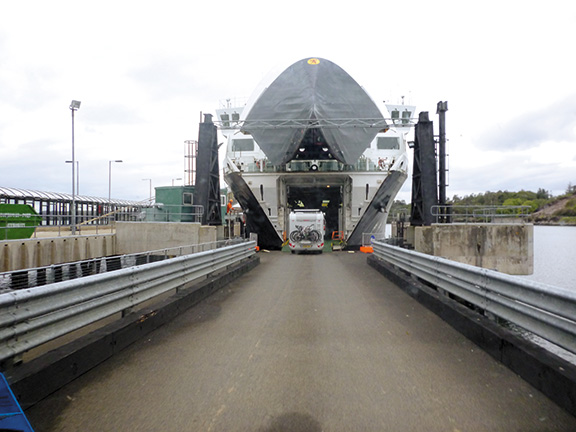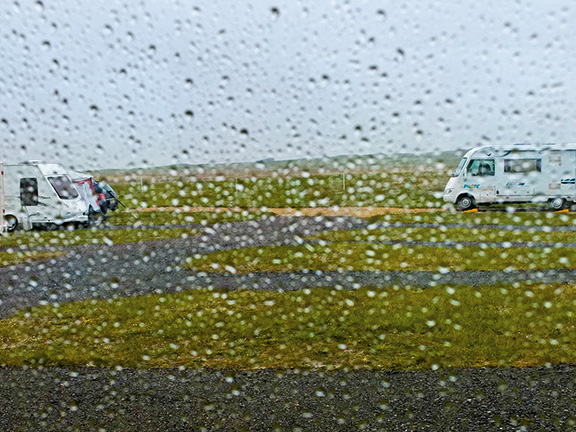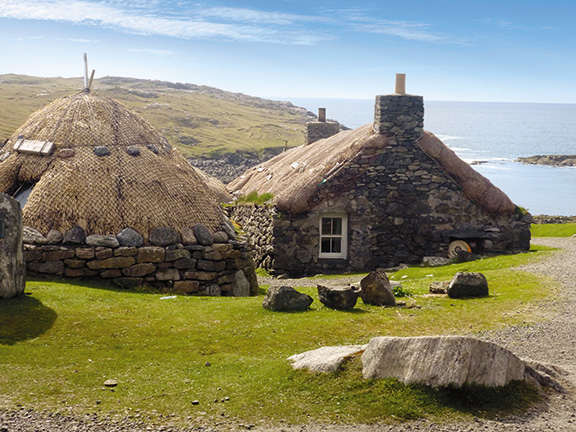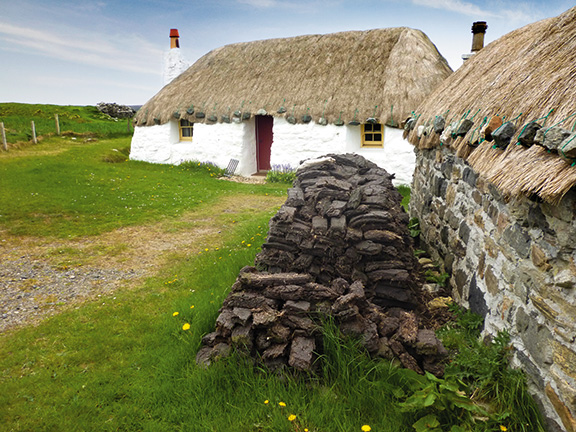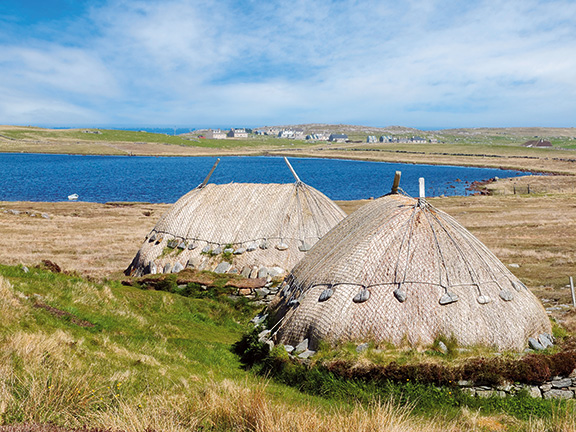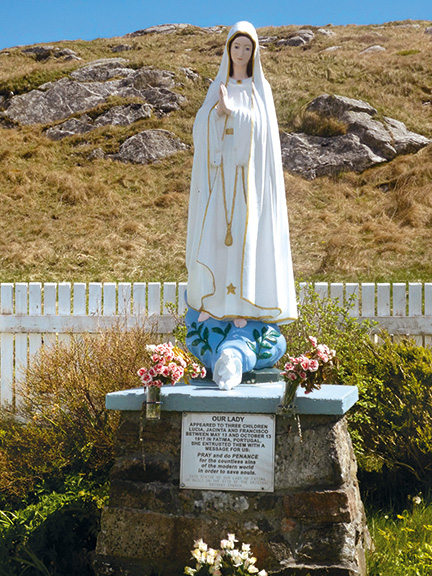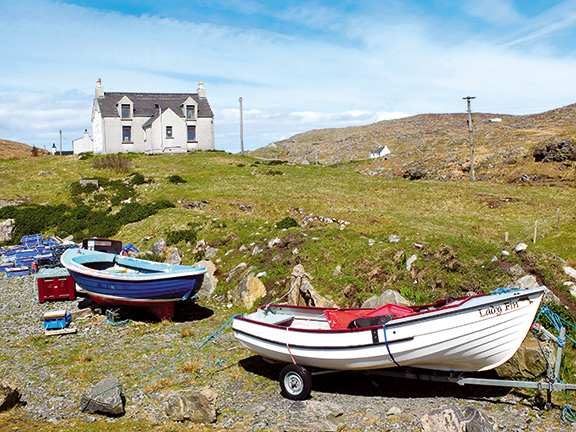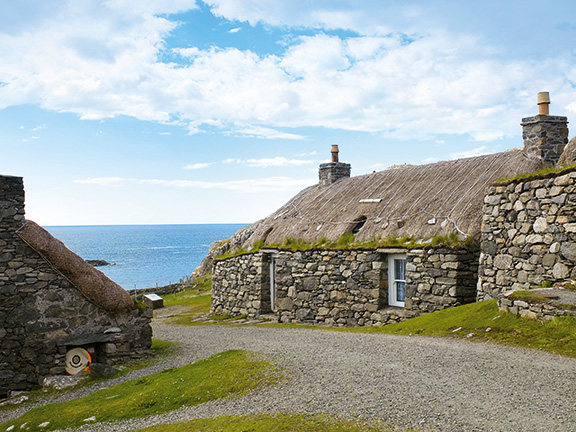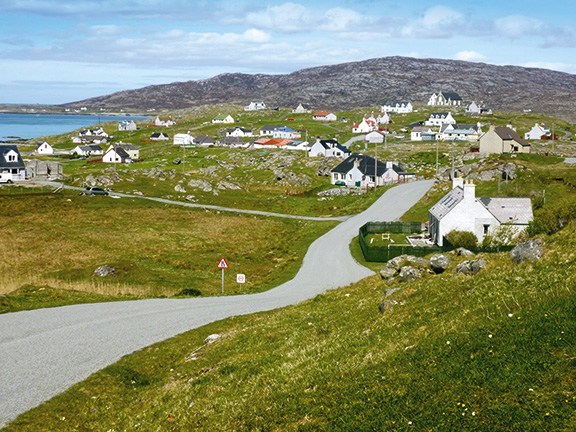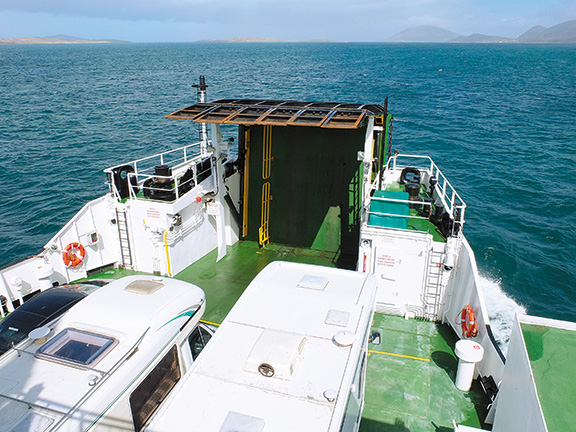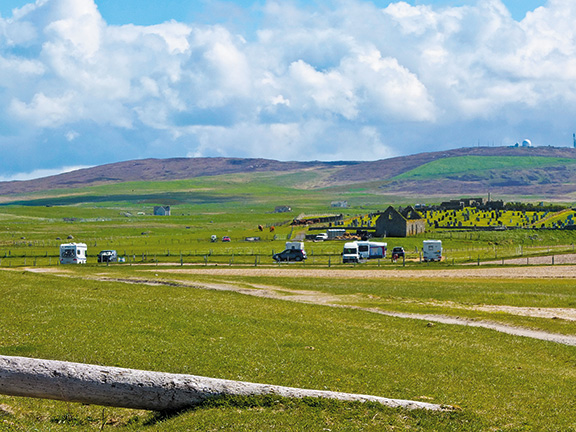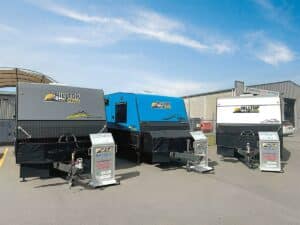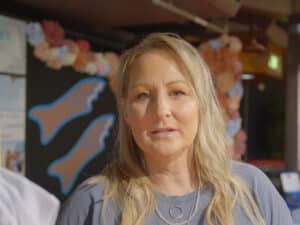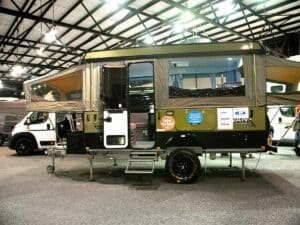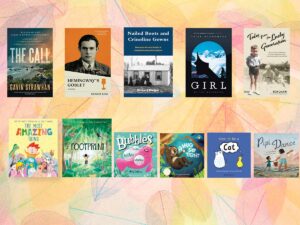The ferry docked at Port Uig on the tip of the Isle of Skye. On the wharf we were beckoned forward by a tough-looking Scotsman, coatless in the cold and needling rain, to be swallowed into the belly of the good ship MV Hebrides, which was to transport us to adventure and discovery among the astonishing islands of Scotland's Outer Hebrides.
Three hours later we disembarked in the pinched little port of Lochmaddy and drove a few hundred metres down the coast through featureless marshes, inlets, and gloomy moorland to pull off the road on the edge of a frothing and forbidding loch.
Of the 50 substantial islands that make up the distant archipelago, only 15 are inhabited. We visited as many as we could, driving the motorhome we borrowed from the butt to the head and hopping from one island to the other by causeway or ferry.
First, we travelled south through the islands of North Uist, Benbecula, South Uist, and onto Eriskay. All were linked by low causeways, which are reassuringly lined by robust rocks. Through them the tides are sucked swiftly in and out.
Dotted over the islands are the remains of round houses a thousand years old, rings of standing stones that are much older and at one point, a reconstructed Norse iron-age mill and kiln.
We parked for the night at Bosta beach on the island of Bernera next to a modern day cemetery and an iron-age village. Ghosts here go back a long way. The Iron Age village was only discovered in 1993, when a particularly strong gale blew away its sandy grave.
We visited the tiny thatched 'black houses' at Garenin on the island of Harris, abandoned since the 1960s but restored as reminders of the privations and hard-bitten existence of a crofter's life. Life is nowhere near as bad these days. New dun-coloured cottages dot the farmlands.
Further north, on the islands of Harris and Lewis, it was the weaving of the once-coveted, course-wool tweeds that kept life prosperous. Until recently, it was all hand-woven and any cheats who dared to use machinery were howled out of town.
The northernmost island of Lewis is by far the largest island, and on its eastern coast is the capital and only town of any size in the islands (population around 8000). Stornaway is too bleak to hold much charm and its buildings reflect its long history as a fishing and shipping port.
Visitors are slowly coming, intrigued like we were, by the stony remnants of 9000 years of habitation and by the wild beaches, the wild weather, and the wild life in Scotland’s Outer Hebrides. And, like us, they fall in love with the bony, unfettered landscapes, and the never-ending sky.
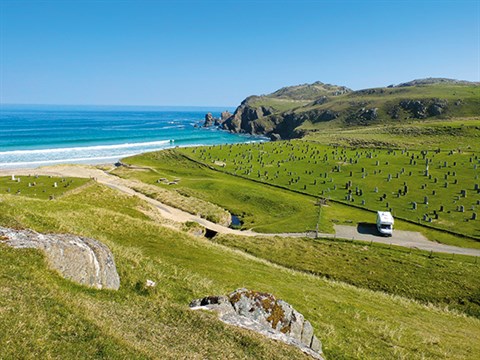
International motorhome swapping
We hadn't considered the idea of swapping motorhomes with another couple until we spotted the small advertisement in a magazine and phoned the number in England out of curiosity.
A few more conversations and emails increased our confidence and almost before we realised it, we had become swappees. Of course, we checked up on any facts we could and they all stacked up to reassure us.
I'm sure the Manchester couple did the same. They hadn't done a swap before either. In the end, we were, all four of us, delighted with the experience.
Apart from getting-to-know-you chit-chat, these are things we discussed by phone or email:
- Timing – when and how long we would borrow each other’s RVs for
- Our vehicle types and sizes
- Our and their motorhoming experiences to date
The advantages of swapping RVs with people overseas
We advised them of the advantages of joining the NZ Motor Caravan Association and the NZAA.
Motorhomes were scrubbed and polished; batteries, tyres, and engines checked.
Made sure all insurances and vehicle certificates covered the period the swappees would be using the motorhome for.
Help with an itinerary and passed on any tips we/they could about motorhoming in New Zealand/Scotland.
A thorough briefing on the workings of the motorhome when they arrived.
Books and maps that may come in handy.
The ability to see far more when the cost of accommodation is removed.
Having a personal base in a foreign country makes things much more comfortable.
Being welcomed and picked up at the airport on arrival by people we'd already come to think of as friends was a bonus.
Sharing tips and insider knowledge about how to get the best out of a trip and how local systems worked.
They lent us their GPS, which was a lifesaver.
For the full account of Jill's excellent adventure, check out issue 121 of Motorhomes, Caravans & Destinations magazine. Subscribe here.

